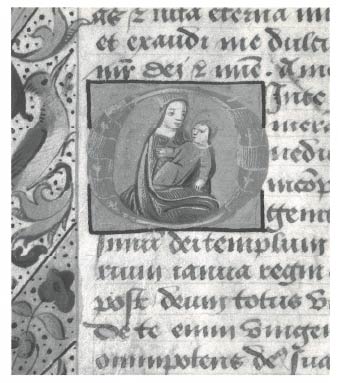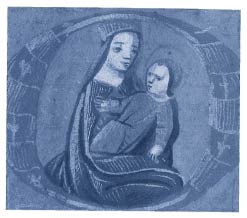Updated April, 2025
I have often been struck by how different psalms fit different parts of the entire church year. For this Advent service I related specific psalms to the season of Advent in the traditional lessons and carols format. The anthems we used reflected themes in those psalms. Because the budget for our small choir allowed for only one new anthem, I chose several older anthems—some now out of print—from their library. You may want to choose different anthems, depending on your resources. Many of the psalms came from Sing! A New Creation (CRC Publications, 2001). We used two readers for the psalms, which we divided according to the context, and provided each reader with a complete highlighted script. A third person read the other prayers and readings. Our pastor gave the greeting and benediction.
The congregation was used to the traditional lessons and carols format with the same readings each year, so they were ready for a fresh approach. The choir wondered during rehearsals how many of these songs would relate to Advent, but during the service, when the songs were set in the context of Scripture, they got the fuller picture. Along with the congregation, they were excited about making the connections.
Welcome and Greeting
Prayer
Eternal God, your promise is spoken in the psalms of David, in the words of the prophets, in the dream of Joseph. Your promise is spoken, eternal God, and takes flesh at last in the womb of the virgin.
May Emmanuel find welcome in our hearts, take flesh in our lives, and be for all peoples the welcome advent of redemption and grace. We ask this through him whose coming is certain, whose Day draws near: your Son, our Lord Jesus Christ, who lives and reigns with you and the Holy Spirit, one God, for ever and ever. Amen.
Processional Hymn
“O Come, O Come, Emmanuel”[st. 1-2, choir, st. 3, 4, 7, congregation]Latin
Psalm 122
The First Lesson
Spoken Response
Lift your eyes, Jerusalem, and see the power of your ruler. Look to a Savior who shall break your bonds.
—from a monastic liturgy
Choral Response
“O Pray for the Peace of Jerusalem,” Thomas Tomkins (SATB; Oxford, in Sixteenth Century Anthem Book)
Psalm 80, as found in SNC 100. Congregation sings the refrain.
The Second Lesson
Hymn: “Come, Thou Long Expected Jesus” Wesley
Psalm 25: Psalm 25 [congregation sings the refrain]Haugen
The Third Lesson
Hymn: “Comfort, Comfort Now My People”Psalter Hymnal Handbook
Psalm 72 from The Message (see below)
Choral Response
The Fourth Lesson
“Break Forth into Joy,”Simper
Psalm 85:1-7
Prayer of Confession

The Fifth Lesson
Lord, when did we see you?
I was hungry, starving,
and you were full;
thirsty,
and you were watering your lawn;
with no road to follow, and without hope,
and you called the police
and were happy that they took me prisoner;
barefoot and with ragged clothing,
and you were saying: “I have nothing to wear,
tomorrow I will buy something new”;
sick,
and you asked: “Is it infectious?”;
prisoner,
and you said: “That is where all those of your class should be.”
[pause]
Lord have mercy!
—Author unknown
Psalm 85:8-13
Congregational Response
“The Steadfast Love of the Lord”McNeil
“Lord, I Lift Your Name on High”Founds
Psalm 146
Sung Choral Prayer
The Sixth Lesson
“Prayer of the Children,” Kurt Bestor, arr. Andrea S. Klouse (The Pinnacle Group/Warner Bros, CH96165)
Spoken Prayer
How long, God of justice, how long
before you hear the cries of your people?
How long will the poor be hungry
before they are fed?
How long will children fear death
before you hold them in your arms?
How long must the weak suffer
at the hands of their oppressors?
What keeps you from acting?
For your Name’s sake we ask!
Father of the poor. . . .
God of all consolation!
Your silence makes mockery of your name.
Come, God of justice.
Too much suffering, too many deaths.
You have waited long enough!
Strike quickly in our world,
and today
in our hearts.
—Pat Kozak and Janet Schaffran, quoted in Soul Weavings: A Gathering of Women’s Prayers (Augsburg Fortress, 1996).
Sung Prayer
“Peace Before Us,” Haas
or
“Lord, Make Us Servants,” Quinn
Psalm 126 [read or sung from SNC 210, st. 1: solo; st. 2: al] Daw
The Seventh Lesson
Choral Response
“Joy in the Morning,”Sleeth
Psalm 89 (vv. 1-5, 13-16, 19-29)
Hymn

The Eighth Lesson
“Hark! The Herald Angels Sing”Wesley
[Choir sings “A Christmas Fanfare,” Benjamin Harlan [SATB, piano, and congregation; Hal Leonard, 1999], which precedes the hymn; includes a descant and a concluding “Gloria”.]
Parting Words
We live always during Advent. We are always waiting for the Messiah to come. The Messiah has come, but is not yet fully manifest. The Messiah is not fully manifest in each of our souls, not fully manifest in humankind as a whole: that is to say, that just as Christ was born according to the flesh in Bethlehem of Judah, so must he be born according to the Spirit in each of our souls.
—Jean Danielou, quoted in An Advent Sourcebook (LTP, 1988), p. 87; from The Advent of Salvation (Franklin, WI: Sheed and Ward Publishing, 1962).
Parting Blessing
Parting Hymn: “Joy to the World! The Lord Is Come” Watts
